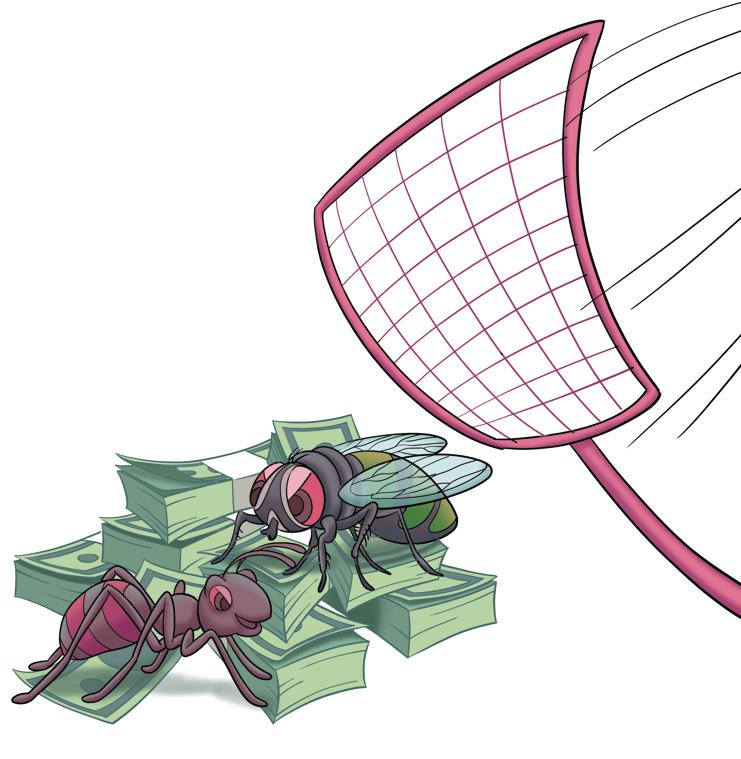China's anti-graft drive to forge ahead in 2024
By Wu Jianxiong | CHINA DAILY | Updated: 2024-01-10 07:04

Xi Jinping, general secretary of the Communist Party of China Central Committee, called for targeted and sustained efforts to win the tough and protracted battle against corruption, as he addressed the third plenary session of the 20th CPC Central Commission for Discipline Inspection, the Party's top disciplinary body on Monday.
China's relentless campaign against corruption yielded significant results throughout 2023, and the country is determined to eliminate corruption and implement the CPC's integrity initiatives in 2024.
Xi has stressed the importance of strengthening the fight against corruption, with a specific focus on addressing industry-specific, systemic and regional corruption. As such, efforts will be made to achieve targeted rectification, eliminate "petty corruption" at the grassroots level, investigate both bribe givers and takers, reinforce a new era of integrity and eradicate the conditions that brew corruption.
Targeted rectification in key sectors is a crucial way of strengthening the comprehensive governance of the Party and winning the long, arduous battle against corruption. This approach aims to eradicate corruption in areas where power, funds and resources are concentrated, which include financing, State-owned enterprises, the legal system, and industries like grain procurement and sales. Simultaneously, measures will be taken to strengthen deterrence against corruption.
Eradicating "petty corruption" at the grassroots level is a key requirement of the anti-corruption campaign to gain the people's trust because, more than the "distant tigers", the public abhors the "flies and ants" that they have to deal with.
"Micro-corruption" at the grassroots level can evolve into a significant hazard, harming the tangible interests of the public, corroding people's sense of accomplishment, and squandering trust in the Party and government. To address this issue, the anti-corruption campaign will be extended to the grassroots, focus will be shifted to anti-corruption measures in towns and villages, rectification of corruption and cases of misconduct will be given priority, stricter punishment will be handed down to those found guilty, obstacles on the "last mile" of the anti-corruption campaign will be removed, and efforts will be made to boost public confidence in the anti-corruption campaign.
Eradication of corrupt practices such as embezzlement, misreporting, withholding information and favoritism by grassroots officials is crucial. And improved governance in areas related to people's livelihoods will allow the public to experience the tangible results and changes brought about by the anti-corruption drive.
Stamping out the protection networks for corruption and corrupt forces in villages, communities and townships is essential. For this, officials have to punish individuals who shelter, tolerate and facilitate the growth of criminal forces, intervene in or obstruct investigations, or nurture "village bullies", "township bandits" or family-based criminal forces. This strategy aims to make the people feel more secure and happy.
Simultaneously investigating both bribe givers and takers is not only a fundamental principle but also a challenging aspect of strengthening the anti-corruption campaign. Only by persistently investigating both sides can the space for "hunting" by the bribe givers and the willingness to be "hunted" by corrupt officials be obliterated, and the breeding ground for corrupt practices destroyed.
Besides, to prevent private enterprises from giving bribes to get their legitimate work done, disciplinary and law enforcement agencies will carefully navigate policies to address bribery crimes while safeguarding the legal rights of private enterprises and minimizing the collateral damage.
The focus will be on key areas and individuals, closely monitoring potential bribe givers in sectors such as construction, financing, SOEs, poverty alleviation, environmental protection, education, healthcare, and food and drug safety.
For those committing minor bribery crimes, first-time or occasional offenders, and people who voluntarily or actively cooperate with investigators, lenient or reduced penalties may be proposed or no criminal responsibility pursued. Adhering to truth, rules, regulations and laws, and after exploring different models, a comprehensive system will be established to classify different corrupt practices and ways of disposing them.
Different models will also be explored before establishing a database of bribe givers to provide data support for precise and effective disposition of bribe givers' cases, in order to organically integrate the fight against bribery and the efforts to boost the development of the private economy.
The overarching direction for China's anti-corruption drive in 2024 is to "sustain efforts and deepen the struggle", reinforce deterrence against corruption, and treat corruption-prone areas as breakthrough points to win the long, arduous battle against corruption. And special efforts will be made to achieve results in areas where achieving breakthroughs is proving difficult.
This comprehensive approach is aimed at preventing, prohibiting and discouraging corruption, and achieving more and better results.
The author is director of the China Anti-Corruption Judicial Research Center, China Against Corruption Law Association and dean of the Discipline Inspection Institute, Xiangtan University.
The views don't necessarily reflect those of China Daily.
If you have a specific expertise, or would like to share your thought about our stories, then send us your writings at opinion@chinadaily.com.cn, and comment@chinadaily.com.cn.
























